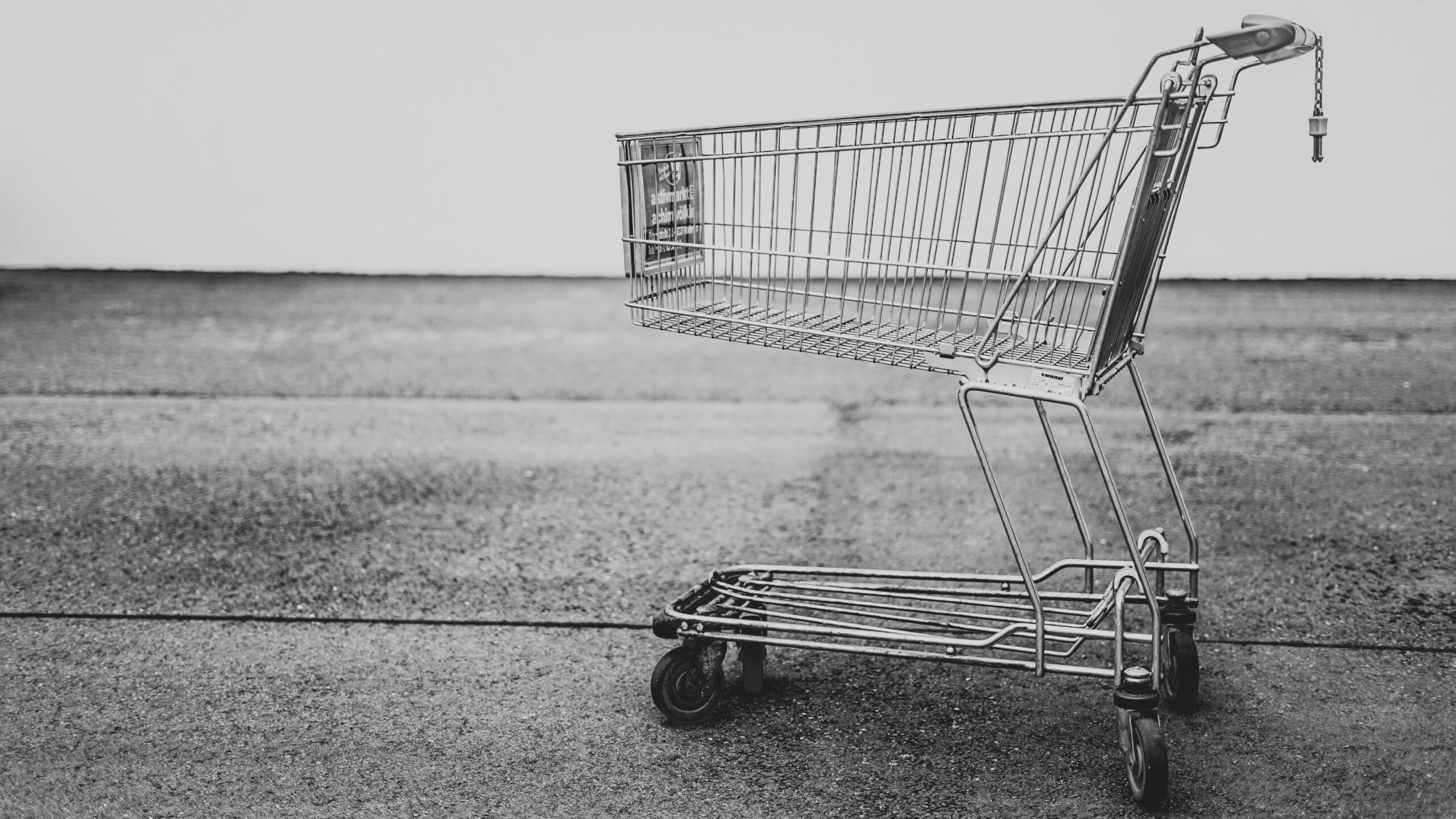The state of FMCG in Germany & top companies
Written by
Kinga EdwardsPublished on
The state of FMCG in Germany uncovered in this article. Check out key insights and information about the companies driving FMCG market.

Let’s talk about the FMCG in Germany – because if you’re in the business of selling everyday products, this is a country you can’t afford to ignore.
Germany has one of the biggest and most stable consumer markets in Europe. People here know what they want, buy regularly, and care about quality, price, and trust. That makes it a unique mix of opportunity and challenge for anyone in the FMCG market.
Ready to see what makes this space tick?
What is FMCG?
Fast Moving Consumer Goods – this is what stands behind FMCG. These are products that people buy often, use quickly, and replace regularly. They’re usually sold at a low price and in large volumes.
Here are some examples:
- food and drinks (like milk, bread, yogurt, pasta, coffee, bottled water)
- cleaning products (laundry detergent, dish soap, sponges)
- personal care items (shampoo, soap, toothpaste, deodorant)
- over-the-counter medicine (painkillers, vitamins)
- household goods (toilet paper, tissues, lightbulbs, batteries)
These products move fast because people need them regularly – and that’s what the whole FMCG industry is built around.
But what about FMCG in Germany? How does the sector look in this country? We will uncover that now.
FMCG in Germany
But let’s talk about FMCG in Germany and how it impacts e-commerce. Consumer spending on FMCG products in Germany increased by 8.9% in 2023 compared to 2022. The growth is driven primarily by price increases caused by inflation and higher sourcing costs, rather than volume growth.
The market was valued at $711.88 million in 2024, and in 2035, it should reach $1843.27 million. It’s forecasted to grow further, with significant contributions from categories like food, beverages, beauty, healthcare, and home care
Generally speaking, shopping online is convenient, right? In Germany, e-commerce is becoming a big deal for the FMCG market. Online FMCG sales make up 13.3% of total online trade. That’s a massive jump from just 1% ten years ago!
Categories like food and beverages and non-perishables are leading the charge in online growth. Germans are in demand for convenience and quality, with ready-to-eat meals, organic products, and innovative beverage options. Surprisingly, the Tobacco Products are on the top as well, despite healthcare consciousness. Beauty and Personal Care products are also gaining popularity, along with Healthcare and Home Care products.
Consumer behavior & FMCG German brands
German consumers show a preference for purchasing daily-use items spontaneously in physical stores. However, the pandemic accelerated online adoption, with 19% of surveyed consumers ordering food online post-COVID compared to just 7% before.
What are they actually buying? We can see a growth in specific categories like ambient food (4.6%) and frozen food (3.1%). Moreover, Tobacco products saw a 4.1% increase in absolute sales, but higher prices purely drove that. Beverages (so products as water, cola, and sports drinks) grew by 4.5%.
But you know what: Germans love their physical stores. They like to see and touch fresh products before buying them. Freshness concerns still hold some shoppers back from fully embracing e-grocery shopping. That said, categories like beverages and non-perishables are thriving online because they’re easier to deliver without compromising quality.
What does this mean for brands?
Well, if you’re not online yet, you should be! But don’t just throw up a website and hope for the best. Think about your customers’ experience. Are your delivery times fast? Is your website easy to use?
These details matter more than you think.
Still, remember about your brick-and-mortar stores and the quality of products you sell there. Are fruits and vegetables fresh? Are the products arranged on the shelves? Is the cleanliness of the shop constantly monitored?
After all, don’t you want to scare customers away once they’ve come in?
Sustainability and fair trade are new priorities
Have you noticed how much people talk about sustainability these days? Fortunately, in Germany, it’s not just talk. Germany is leading the charge with ambitious plans like the Energiewende initiative, which aims to boost renewable energy production and reduce greenhouse gas emissions by 55% by 2030. The commitment is backed by government support through subsidies and tax incentives, making it easier for businesses to adopt eco-friendly practices
Moreover, Germans are embracing concepts like recycling, refillable packaging, and resource efficiency to minimize waste.
When it comes to fair trade products in Germany, they generated a whopping €2.34 billion in revenue in 2023. Coffee leads the way here, while other categories like tropical fruits or tea stand far, far behind. German shoppers are just choosing products that align with their values for real.
Why is this happening? It’s simple: Germans care about the planet. They’re looking for eco-friendly packaging, ethical sourcing, and transparency from brands. For businesses, this is a wake-up call.
Just think: are you offering sustainable options? If not, you might be missing out on a huge chunk of the market.
Or would you pay extra for something that feels good to buy? Consider that, as many Germans answer yes.
Top companies and start-ups that strengthen FMCG in Germany
If you’re wondering who’s behind the success of FMCG German brands, who supports them, and the very brands that make up FMCG in Germany, here is a list prepared by F6s.
Parloa
Parloa has emerged as a prominent provider of B2B SaaS platforms specializing in Conversational AI. The company focuses on revolutionizing customer interactions by integrating advanced artificial intelligence and machine learning technologies.
Parloa’s solutions are designed to enhance customer service operations, enabling businesses to automate and optimize their communication channels effectively. By offering a comprehensive dialog management system, Parloa allows enterprises to manage conversations across various platforms, including voice assistants, chatbots, and phone systems, from a single hub.
3Bears GmbH
Founded in 2015 and headquartered in Munich, 3Bears GmbH is a food startup dedicated to producing 100% natural, oat-based breakfast products. The company’s flagship offering is its porridge, crafted with large, juicy pieces of fruit and whole oat flakes, providing a wholesome and hearty meal option.
3Bears emphasizes health and quality, ensuring that all products are free from industrial sugar and artificial additives, relying instead on the natural sweetness of fruits. Their product line includes a variety of flavors and extends to related items like granola and oat bars, catering to diverse consumer preferences.
JoyBräu
Established in 2016 in Hamburg, JoyBräu introduced the world’s first non-alcoholic functional beer, combining the traditional taste of beer with health benefits. The company’s innovative beverages are low in calories and sugar, made exclusively from plant-based ingredients, and enriched with functional additives like proteins and vitamins.
The form caters to health-conscious consumers and fitness enthusiasts. JoyBräu’s product line includes flavors such as Lemon and Grapefruit. They offer refreshing options that align with a healthy lifestyle. In 2023, the brand was acquired by Oettinger Brewery.
lenzbox
lenzbox is dedicated to revolutionizing contact lens care through its innovative, cartridge-based system. The company’s flagship product, LENZBOX®, is an all-in-one solution that simplifies the cleaning and storage of contact lenses. This device combines an advanced lens container with a replaceable liquid cartridge, connected via a pump mechanism.
Designed with user convenience in mind, LENZBOX® offers a hygienic, efficient, and stylish approach to daily lens maintenance. They reflect a commitment to enhancing the contact lens user experience.
SENS Foods Ltd.
Founded in 2017 and operating out of Berlin, SENS is pioneering the use of cricket protein as a sustainable and nutritious food source. The company produces a range of products, including protein bars, gluten-free pasta, and chocolate protein shakes, all incorporating cricket protein to offer health benefits while promoting environmental sustainability.
SENS Foods aims to address the global challenge of sustainable food production by utilizing insect-based proteins, which have a lower environmental footprint compared to traditional livestock.
POSpulse
POSpulse is a retail intelligence company specializing in providing real-time, crowdsourced shopper insights. Utilizing a network of mobile scouts through their proprietary app “ShopScout,” POSpulse gathers data directly from points of sale – offering clients valuable information on product performance, promotions, and customer experiences.
Their approach enables businesses to make informed decisions, optimize their marketing strategies, and enhance overall sales performance. POSpulse’s clientele includes notable companies such as Procter & Gamble Prestige, Unilever, STORCK, and Vodafone.
Springup Team
Established in 2015 in Hamburg, Springup Team specializes in developing sampling software tailored for Fast-Moving Consumer Goods companies. Their solutions are designed to streamline the process of product sampling, so businesses can efficiently distribute samples to potential customers and gather valuable feedback.
By leveraging technology to optimize sampling campaigns, Springup Team helps FMCG companies enhance brand awareness, engage with target audiences, and drive product trials.
12traits
Established in 2018 in Berlin, 12traits leverages psychologically based artificial intelligence to provide deep insights into customer behavior and preferences. The company’s platform combines AI with a rapidly growing database to help businesses understand the human elements behind their customer base.
12traits offers a unique approach to audience analysis. In this way, it empowers companies to tailor their products and services better to meet the needs and desires of their customers.
What’s driving the change?
Technology is everywhere these days, and as we can see, even in the FMCG market. Brands are using AI in advancements in food processing and packaging, but also to improve supply chains, personalize customer experiences, and collect real-time data from stores and shoppers.
Whether it’s cricket protein snacks, sustainable packaging made from mycelium, or contact lens care connected to your smartphone, the FMCG market is evolving fast – and tech is right at the center of it.
And guess what? It’s working! And don’t forget FMCG German brands use technology for smart digital marketing strategies, to keep customers hooked.
But here’s a question: Are FMCG German brands doing enough? Some say that they’re lagging behind other European companies (with the UK and France). But the good news is that there are plenty of trends driving growth and innovation, like digital-first strategies, direct-to-consumer websites, hyper-personalization through AI, voice search optimization, or micro-trends in social media. They all can help you engage with shoppers on a whole new level.
So, what can brands do better?
Focus on being where their customers are – whether on Instagram or inboxes. And don’t be afraid to experiment with new tech!
Prepare your FMCG in Germany for new opportunities
If you’re in the FMCG market and eyeing Germany, this is your sign to get moving. The market is strong, the demand is steady, and the big names aren’t the only ones making moves.
Prepare your FMCG in Germany for new opportunities, because smart positioning, local insight, and great products can still open doors. The shelves are just waiting.
***


